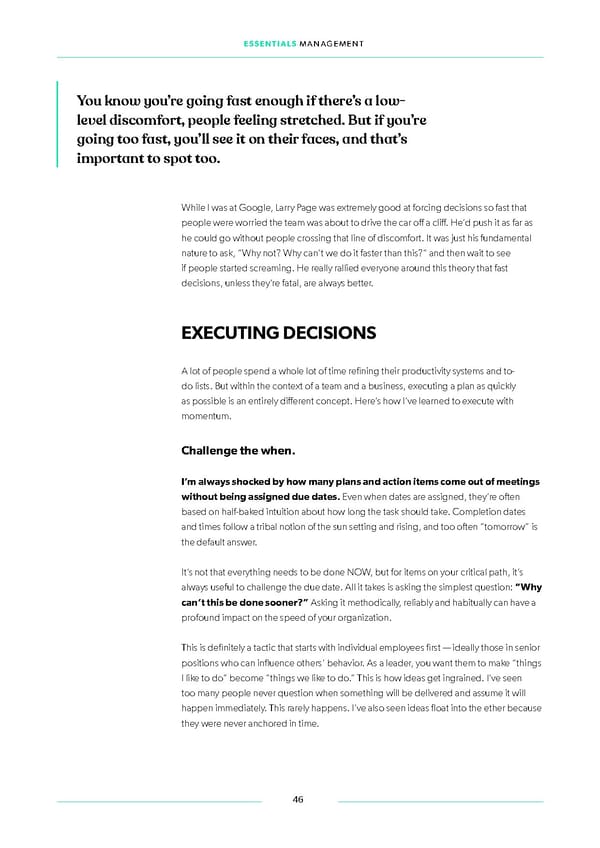ESSENTIALS MANAGEMENT You know you’re going fast enough if there’s a low- level discomfort, people feeling stretched. But if you’re going too fast, you’ll see it on their faces, and that’s important to spot too. While I was at Google, Larry Page was extremely good at forcing decisions so fast that people were worried the team was about to drive the car off a cliff. He’d push it as far as he could go without people crossing that line of discomfort. It was just his fundamental nature to ask, “Why not? Why can’t we do it faster than this?” and then wait to see if people started screaming. He really rallied everyone around this theory that fast decisions, unless they’re fatal, are always better. EXECUTING DECISIONS A lot of people spend a whole lot of time reifning their productivity systems and to- do lists. But within the context of a team and a business, executing a plan as quickly as possible is an entirely different concept. Here’s how I’ve learned to execute with momentum. Challenge the when. I’m always shocked by how many plans and action items come out of meetings without being assigned due dates. Even when dates are assigned, they’re otfen based on half-baked intuition about how long the task should take. Completion dates and times follow a tribal notion of the sun setting and rising, and too otfen “tomorrow” is the default answer. It’s not that everything needs to be done NOW, but for items on your critical path, it’s always useful to challenge the due date. All it takes is asking the simplest question: “Why can’t this be done sooner?” Asking it methodically, reliably and habitually can have a profound impact on the speed of your organization. This is deifnitely a tactic that starts with individual employees ifrst — ideally those in senior positions who can inlfuence others’ behavior. As a leader, you want them to make “things I like to do” become “things we like to do.” This is how ideas get ingrained. I’ve seen too many people never question when something will be delivered and assume it will happen immediately. This rarely happens. I’ve also seen ideas lfoat into the ether because they were never anchored in time. 46
 Essentials Management First Round Capital Page 45 Page 47
Essentials Management First Round Capital Page 45 Page 47